Would you agree with me, when I say: “Avoiding costly travel mistakes should be your number one priority when organizing your next trip?”
Well then, harken!
An estimated 9 out of 10 tourists don’t get the maximum out of their trips. Most pick bad itineraries, even more waste time where they needn’t, and almost all spend too much money – and that does even mention all the tourist scams.
In this post, I’m going to show you exactly how I save money, time and trouble on all my trips. Despite having visited more than 60 countries (stopped counting, really) and probably a 1,000 flights or more, I never lost my luggage, never got robbed and never got scammed (okay, there was this one time in Uzbekistan when a police officer made me pay way more than I should have).
But can you make use of all my accumulated mistakes and lessons learned?
Yes, you can! Instead of compiling a standard list of universal truths, I distilled precious gems from more than 30 years of travel experience for you. No matter if you are backpacking, cruising or enjoying luxury resorts, you can employ these tips and tricks to travel longer, better and cheaper.
Anyways, let’s get right into it, eh?
PS: And make sure to download my travel planning checklist at the very bottom of this post
1. Not comparing prices

Not comparing prices is the number one mistake of most travelers. Traveling is expensive and, for most of us, money is the limiting factor when planning a new trip. So, getting the best deal is an important factor when determining the quality and length of your stay. That’s why you should always compare prices. Always. Period.
I am a huge fan of booking.com, and there are a lot of flight search engines I frequently make use of. But that doesn’t mean I don’t check with my trusted travel agent and on the website of the property or airline directly. A travel agent will often be able to get you lovely perks (like a guaranteed upgrade or an additional night for free).
The comparison sites we all got used to often tell us, they got the best deal – but it’s not always true. After all, they want to earn some money in the process as well.
Also, if you are booking an all-inclusive-tour, do check whether it’s cheaper to book it separately and vice-versa. You probably won’t be successful most of the times, but sometimes you are. In the age of the internet, it takes you five seconds to validate an offer that sounds dead-cheap (but maybe isn’t). Sometimes, a deal WITHOUT breakfast (or full-board) and booking the meals at the receptions is cheaper than booking the package and vice versa.
And, sometimes it even helps to call the hotel. The hotel earns the most when you book directly via their site, so why not call them (or send them an e-mail) that you saw the deluxe room for $100 a night on booking.com and whether they want to match that price and add breakfast on top (but please don’t start insensitive haggling ;-)).
2. Not checking a (weather) diagram
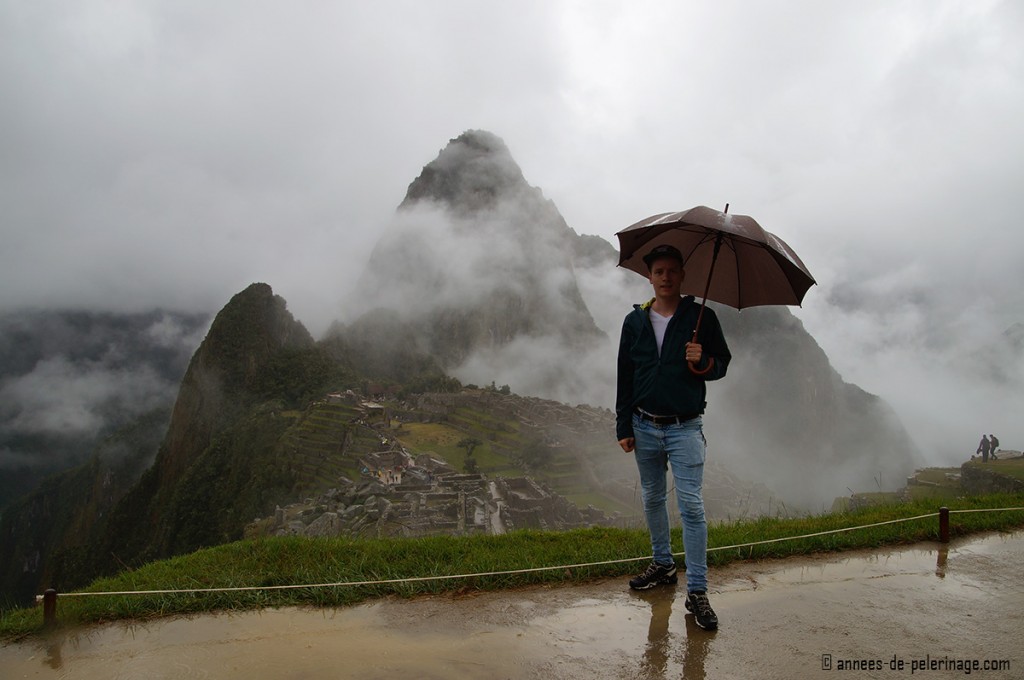
If you look around my blog, you will see a lot of (hopefully) beautiful pictures. Blue skies in Scotland, Iceland, and other countries “renowned” for their rainy weather. Before you even decide to go on any trip, always consult a weather diagram for the best time to visit. You don’t want to visit Dubai in August when even the locals flee the country and visiting Machu Picchu in January might not be the best idea either (except you got gills).
Look out for factors like hours of sunshine, rainfall (precipitation), temperature and humidity. But also look beyond it: On Seychelles, it will rain almost every day throughout the year. But the rain showers usually only last 5 minutes, while temperatures and hours of sunshine are very stable throughout the year. The wind and currents are the deciding factors. On wildlife trips, always keep mating & migration seasons in mind. It’s simply not possible to see puffins in Scotland/Iceland in March, as they only start building their nests in May.
And while we are at it, do a quick search on google for festivals in the area (can be both, a bad or a good time to visit!). One of the most frequent travel mistakes: visiting during international summer holidays as most families will have to go abroad in July/August (etc.), which leads to high prices and crowded attractions. E.g. if you don’t plan to visit the worldfamous Oktoberfest, don’t book a trip to Munich at the end of September, when hotel prices will triple (or worse).
3. Not buying tickets online
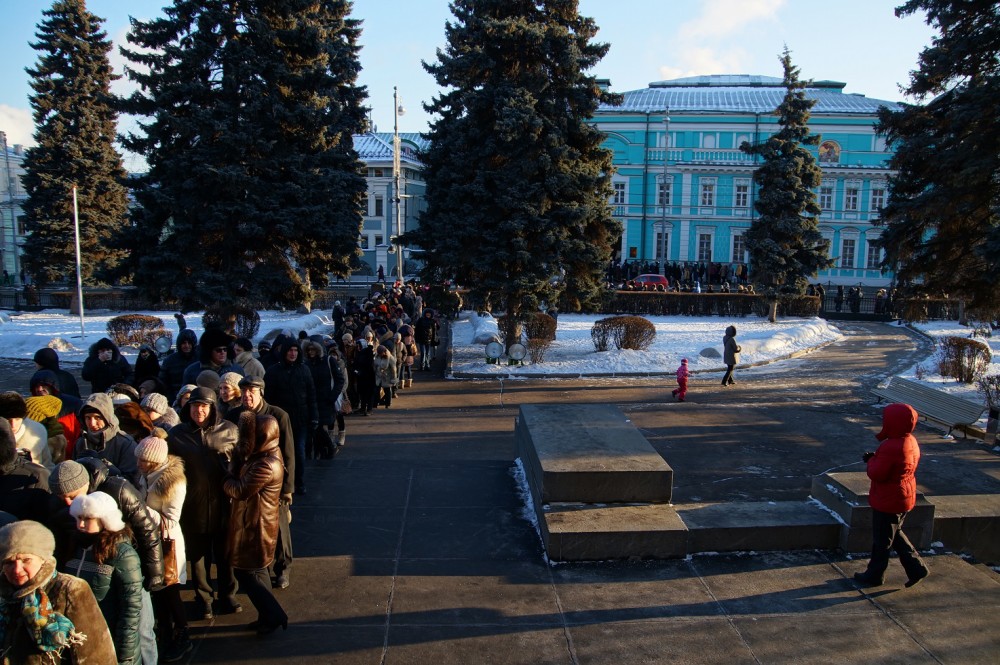
No matter if you are visiting Paris, Rome, New York or Machu Picchu – at one point or the other you will need tickets to enter certain attractions, national parks, and museums. Now, lining up in long queues is not only boring, it’s also a waste of time and in most cases utterly unnecessary.
Most modern attractions do have a website and usually offer you a way to book tickets online and in advance. If you can, always do so, but don’t forget to print them out and take a digital copy along as well. In some cases, tickets sell out so fast, that you got no or little chance to get in at all without prior booking (Machu Picchu, Castle Neuschwanstein, or any 3-starred Michelin restaurant come to my mind)
4. Not preparing for long distance flights
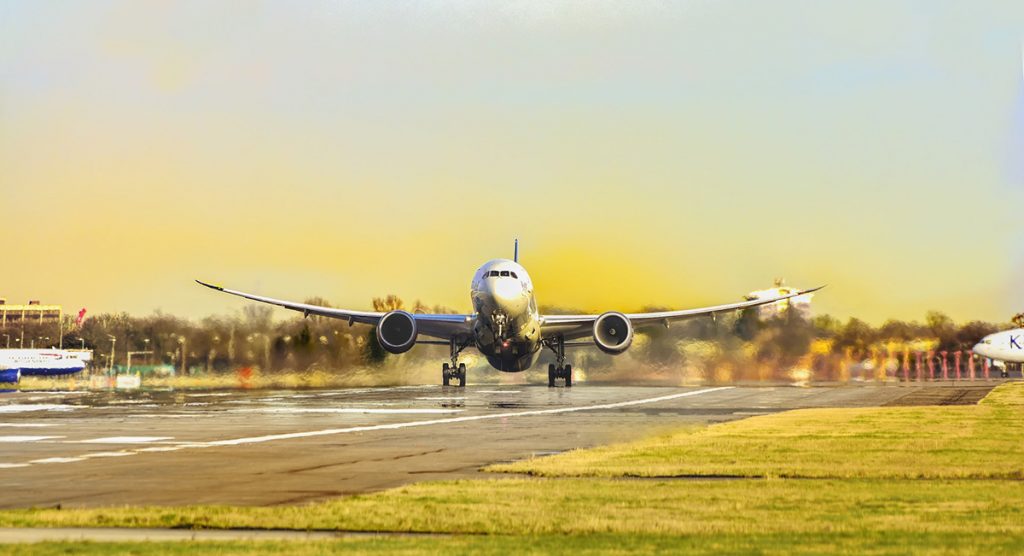
Would you agree, when I say: Business class makes all the difference whether you arrive relaxed or stressed after a long distance flight?
Wrong!
A flight is so stressful for three reasons: Loud noise, dry air & bad posture. A long distance fight is a bit like spending a night at a techno club – only worse. But there are very easy ways to combat that.
- Buy a big bottle of water after security. I know they sell for a premium. But that way you can stay hydrated throughout the flight and don’t have to wait for the service team to arrive with those tiny plastic cups every 2 hours.
- Earplugs. Or better: Noise canceling headphones. That way you don’t overstress your ears AND you can enjoy the entertainment system so much better (you certainly remember turning up the volume to max and still not hearing everything. Well, there’s your solution!)
- Bring a neck pillow and a sleeping mask. I know, I know, it looks a bit dorky, but honestly: I’d rather enjoy a nice long sleep than having dark blue eyebags when arriving in Tokyo after 14 hours. Your choice!
- Bring a small toiletry bag with a toothbrush and some facial lotions. There’s a reason you get them for free in first class. But that doesn’t mean you can get the same comfort for a dollar or two at your drug store.
Here is my list of more tips to survive long flights like a pro >>
5. Not checking opening hours & national holidays
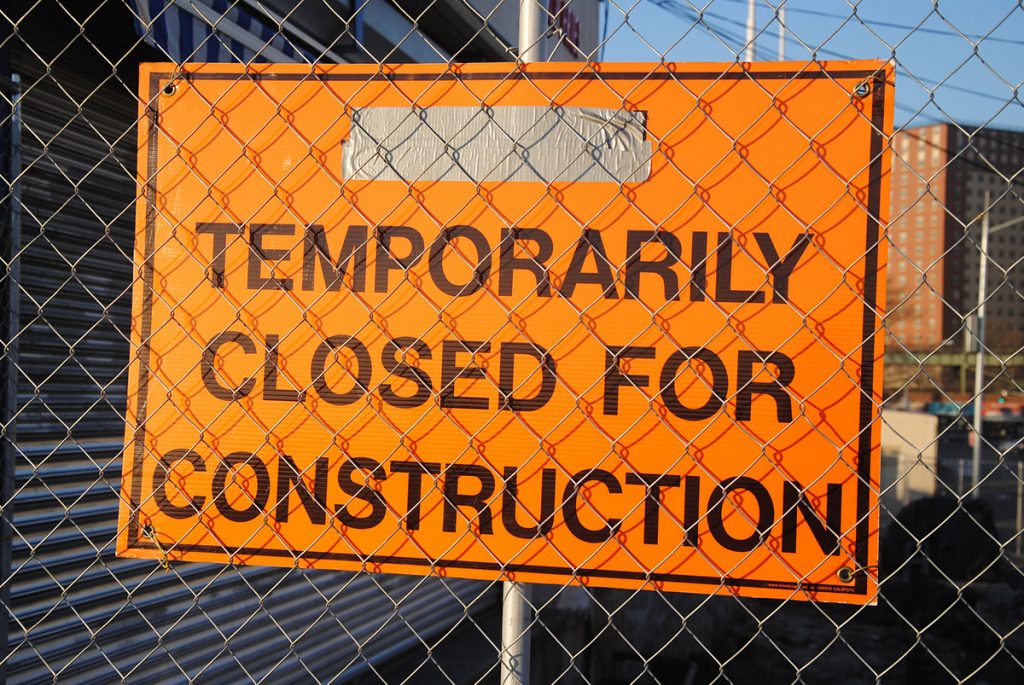
Sorry, we’re closed.
How I hated these words when I arrived at the Temple of Heaven in Bejing close before 5 pm. So, do your homework, and check the most important opening hours BEFORE you even consider going on a trip. I usually stay at least three days in one place, so I can always return, but most people don’t have that luxury.
Also, make extra sure that there are no national holidays (at least not those that lead to a public stillstand :P) and that museums or points of interest are not undergoing a renovation phase (very common in European cities. Those buildings a 1000 years old require some serious maintenance).
6. Packing too light
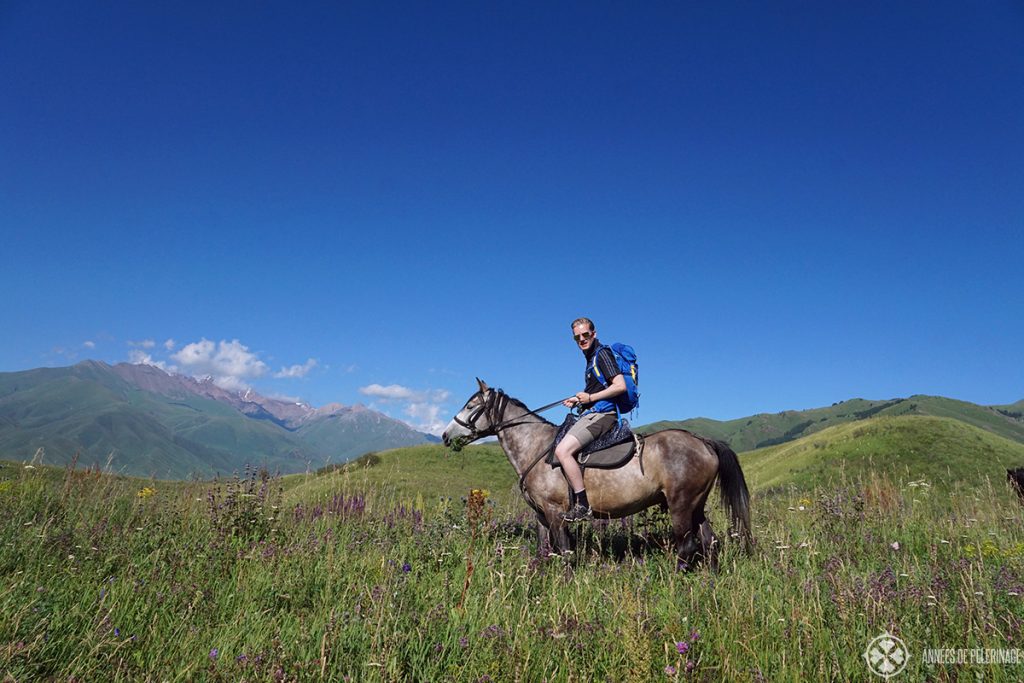
A lot of fellow travel bloggers seem to advice packing too light. Some even suggest traveling with just a carry-on. Personally speaking, I feel packing too light is a downright bad advice, if not even a travel mistake. Why? Well, first of all, because most airlines have been steadily reducing the carry-on size allowed for economy class seats. But here are three more important reasons:
- It makes no sense to skip packing hygiene articles & liquids and then wasting precious time in the country searching for shops to replace them. Oftentimes western standard products are even more expensive than at home. The few minutes you save at the airport do NOT make up for it.
- It makes no sense to only bring two outfits and then wasting time & money to wash clothes (except you are backing-packing, obviously)
- It makes no sense to go for a smaller suitcase on an organized trip where your luggage will almost never leave the hands of a porter or a conveyor belt.
BUT:
Always check the maximum luggage allowance for your flight/train. Will be awkward if you have to pay extra, eh? And make sure to not bring your whole closet. You won’t need it, believe me!
7. Buying cheap flights
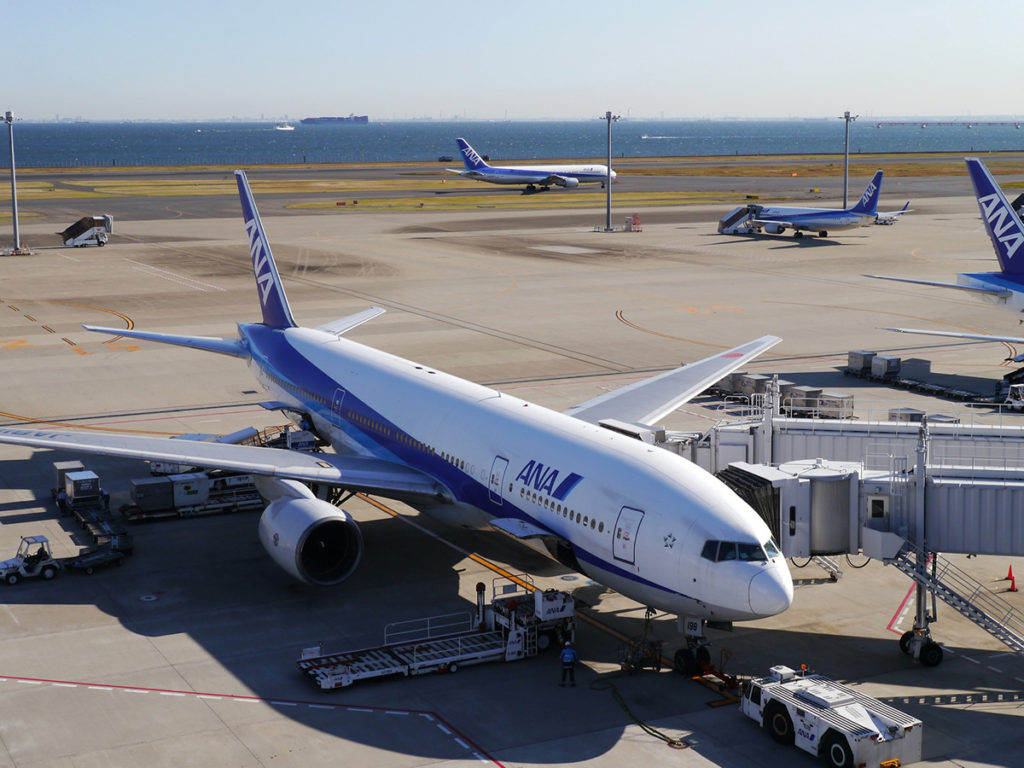
I am all for saving money, but only when you are smart about it! In these days, time is the most important commodity, but even if you got unlimited time (say a 20something taking a gap year), booking the cheapest available flight might not be a good idea. Here is a checklist:
- The best time to arrive is early in the morning and the best time to leave is late at night. That way you maximize your time on site and minimize your hotel costs. It makes no sense to save 50 US-Dollar on a flight arriving late at night, forcing you to stay one additional night for 100 US-Dollar. Or paying for an additional night when you have to leave 6 am in the morning.
- Always try to pick a direct flight. They might be more expensive, but they are usually the least stressful and most convenient way to arrive at your destination. A layover of 8 hours in Doha or Istanbul often means you are wasting a full day of your precious vacation time! I like to arrive relaxed and not end a beautiful vacation with stress (sometimes doing a 2 or 3-day layover can be very smart, though!)
- Low flight fares usually are a combination of low demand or high competition. Always make sure to research why this flight is so cheap. Off-season or political upheavals come to mind. Make sure, you know what you are buying.
- Also, check for legroom, luggage allowance and hidden airport fees and compare different offers, if available. Some flights only appear cheaper.
Note: When booking flights you might want to check with your travel agent as well. They sometimes got access to special (and therefore cheap) contingents of the big tour operators.
8. Getting priorities wrong

This is a topic very dear to me. Whenever I see average tourist booking business class flights my heart skips a beat or two. Your first and foremost priority should be your experience. If booking that helicopter flight over Maurtius means getting a cheaper hotel, do it. If getting a better hotel or a better room type means booking a cheaper flight, do it (here is a post about what luxury really means to me!).
Never ever save on the experience. If you take part in common loyalty programmes, try to use your miles for good hotels. Sitting in a reasonably comfortable plane seat for 8 hours does not compare to sleeping 2 weeks in a shitty hotel. And sleeping in a lovely luxury hotel makes no sense if you can’t afford the tickets for the museum, national park or hire a private guide to show you the secret spots underneath the Colosseum in Rome where nobody else is allowed in.
Start with the perfect experience, and use whatever spare money you got and invest it into accommodations. And if there is spare money left you don’t miss, then invest it in transportation (and use your common sense, as there are bound to be some caveats in my generalization :P)
Note: If you are wondering if booking business class is worth it, read this guide.
9. Not checking shampoo & lotion caps (twice!)
A very important advice for all the ladies and the guys who finally accepted that grooming the male body is equally as important: Higher or lower pressure does weird things to liquids & gases. They contract or expand. If you ever visited regions above 4,000 meters of altitude, you probably know what I am talking about: Shampoo or body lotion spilled all over your clothes like alien-snot.
There are three easy ways to avoid it:
- It’s actually better to pack semi-full tubes/bottles and leave the contents some room to breath
- Always pack liquids into a sperate and watertight bag (always)
- And always check if the caps are tight (twice)
10. Not bringing a power converter/power bank
Could you live without your smartphone for two weeks? I couldn’t. Lol! But neither is it necessary (some digital detox is good at times, though! No need to check my Instagram feed every 5 minutes)
But modern electronic gadgets like mobile phones, laptops or tablets run out of power faster than you can say “Llanfairpwllgwyngyllgogerychwyrndrobwllllantysiliogogogoch” (<- happens to be the longest city name in the world).
That’s why you absolutely need to bring a power converter on your travels. Sometimes you might even need a step-down converter as the voltage in the USA is distinctively different than in Europe or Asia. Make sure to always check the voltage and sockets in use in the country you are visiting.
It might also be a smart move to bring a power bank for these long days on the beach you spend reading on your tablet etc.
11. Not informing others of your travel plans
Always, always inform at least one person in the family of your travel plans, where you are going and where you are staying. There might be an emergency at home or you might have an emergency. Hell, you might even get kidnapped or have a horrible accident, with nobody knowing where you are.
For longer holidays, make sure to have someone empty your post box. If you get a bill or a letter from a lawyer or a court, they really won’t listen to excuses like “I was on holidays”. YOU are responsible for organizing a proxy!
Naturally, you also have to inform your bank and credit card company of your travel plans to ensure smooth transactions.
12. Not pre-booking your accommodation
One of the biggest travel myths of all time is probably that there is no need to pre-book accommodations.
Guys. I’m sure you heard lovely stories about this couple backpacking Southeast Asia and deciding each and every day anew whether to travel on or not and had the time of their lives.
Fair enough. There are places in the world where hotels are not frequently booked out, places where hotels are so cheap you can just walk in and ask for a room.
Do that anywhere in Europe and you will spend at least 50 percent more than booking online. You might also waste hours searching for a hotel (or one with a vacancy).
Now, while I believe it’s not utterly fair, booking.com and other sites allow you to cancel your reservations up two 48 hours before your stay. If you really want to stay super versatile, you should research possible hotels and their locations at the very least, so you don’t err around town with a heavy backpack. Booking a hotel (or even hostel) directly at the reception is usually way more expensive than online.
13. Bringing no first-aid kit
There are countries with an excellent infrastructure and a pharmacy around every corner. Germany, my home country, is one of them. Sometimes it feels we have more pharmacies than grocery stores. But then there are countries like Kyrgyzstan, where the next hospital might be a two day’s (horse) ride away – weather permitting.
Always, have a first-aid kid along. Traveling to Egpyt without something against diarrhea or to sub-Sahara Africa without malaria medication is just stupid. If you are hiking, you will always want to have a band-aid and some bandages along, etc. And having painkillers at hand is certainly also always a smart move, as are blister blasters and a hand sanitizer.
There are super small first-aid kids and it’s not like you have to buy a new one for each trip. If you are traveling to a remote country or one with a lower standard of living, always consult your doctor before a trip!
That is so much more important than getting a travel health insurance (I got one. Get one, too. But I NEVER needed it). A problem is always best solved at the root.
14. Forgetting your vaccination

Catching rabies or typhus abroad is no joke. Seriously! It can be deadly and there is only one way to fight it: Get a jab!
There are quite a lot of countries that even require you to have certain vaccinations. Yellow fever, rabies or hepatitis come to mind. You may not be able to enter without one (nor would it be smart).
15. Not checking the Bureau of Consular Affairs
Most western countries have something like the Bureau of Consular Affairs in the U.S. (click to access). In the Uk, it’s the Department of Foreign Affairs and Trade (click) and in Germany, it would be the Auswärtige Amt (click). They all have one thing in common: they offer very detailed travel advice. Always check their website before you book a flight for current travel warnings.
There’s usually a lot of other useful hints on visa requirements, and common travel mistakes in the area you really shouldn’t ignore. In some countries, you might need to bring a current passport photo or even apply months in advance (like Russia). Worse: If you are an expat /hold a dual citizenship, you might even be forced into military service, etc. upon returning to your home country.
Important: Always check if there are certain travel restrictions when entering (or leaving) a country. E.g. it is strictly prohibited to bring any organic material to the Galapagos islands or entering China with a severe case of flu, etc.
16. Not preparing your flat/house
A trip almost always means your apartment or house will be unattended. If you got family to look after it, good for you. But if you don’t, make sure to prepare it properly.
Don’t leave windows open, empty the fridge, consider removing technical gadgets from their power source, shut down the water, make sure all doors are properly locked (you know, pulling shut a door won’t actually lock it, eh? you need to turn around that key – twice!). Why? First of all, you’ll save money that way. But there’s also always a danger connected to leaving things unattended. Mind you, not a big one.
Also, know that in case of a burglary your insurance won’t cover anything if you left that porch door ajar or the window in your bedroom tilted. Same applies to things like fire or water damage if you have been careless.
17. Not researching the local tipping culture

Travel within the U.S. or say Egypt without tipping will not make you friends very fast. In Germany, tipping overly much will at least give you puzzled looks (though they’ll willingly take the money). Travel to Japan and tip a waitress and she will be mortally insulted.
There are countries where they pay service personnel a very fair wage that covers their expenses. To them, tipping is like saying the service was not adequate and here’s some money so you’ll do better next time.
Other countries, like Italy, will usually charge a service fee on restaurant bills. While some cruises/hotels will explicitly state that all gratitudes have already been covered with your room fare.
Cultures differ, so make sure to know in advance on how to behave!
18. Making use of minibars & airplane meal plans
Most luxury hotels long adopted a policy of free mini-bar and free snacks/fruit, but a lot of hotels are still sticking to whatever they thought was an upsell back in 1980. A small bottle of water for 5 USD? Some salty peanuts for 8? The worst you could ever do is, making use of the mini-bar in your hotel. Instead, go to a local grocery store on your first day and snatch up a 6-pack of water.
Same goes for airlines: If you got the chance, skip that squishy mystery meat of the day wrapped in super-heated aluminum foil meant to cause first-degree burns, and get yourself something proper in the duty-free area. It will usually taste better and will be cheaper (even though they still charge abnormally high prices).
19. Not bringing copies of all documents
It never happened to me, but your wallet might get stolen. You might lose it as well – and gone are all your valuables. Money can be replaced. Call your family and they would be able to transfer some money to get you back via Western Union and the Embassy will probably help you as well.
But if you got no passport, things will suddenly start to get problematic. A copy of your passport has no legal authority, but it will certainly speed up the process of getting you out.
There could also be an issue with hotel reservations, transfers or flight tickets. Best prepare a little folder or pouch with all these documents before you leave and maybe upload them to some cloud drive as well. Just please, don’t store the pin of your credit card.
20. Not checking hotel bills thoroughly
There are hotels with a 1,000 beds and more. While I try to stay at smaller, more intimate properties, mistakes still happen. Maybe you paid in cash at the bar the last evening, but somehow the unpaid amount still made it to your check-out bill or you only went to breakfast 3 out of 4 times.
Or the hotel even mixed up your reservation and accidentally made you pay more than you signed up for. I often had more (or less) breakfasts on my bill.
Don’t just hand over your credit card. Go through each item on that bill and double check. (here’s another instance where having copies of your reservations along will come handy).
21. Not picking up a business card of your hotel
All hotels offer free business cards at the reception or concierge desk. Pick one up. Why? You might get lost or you might be incapable of communicating properly with a taxi driver (say you are in the middle of Chongqing, China). Handing over that business card will be your easiest, fastest and cheapest way to get back.
22. Not complaining, when there is a problem
You don’t want to know how often there was a problem with my room, cabin or tour. Traveling is a concert of so many factors and sometimes things go wrong. But when you are staying at a luxury hotel, where a room costs 1,000 US-Dollar a night, you expect perfection. A lot of people just accept the apologies of the hotel, but you really shouldn’t make this mistake.
If there is a major problem (like booking a room with a private jacuzzi that turns out to be broken), then you should demand a refund. Mind you, never insult anyone or use crude language – that doesn’t get you anywhere. State your problem and demands in a concise and polite way, and you will almost always get your money back (or parts thereof). After all, you paid for a service which you didn’t get. It’s totally okay to complain.
Important: Play fair and always stay friendly. Don’t start complaining about every speck of dust or expect a full refund. And don’t go on a rampage on social media either. Such behavior actually gets you nowhere.
23. Not planning enough

And while we are at it: I am quite the control freak. So, preparing a very, very detailed itinerary is second nature to me (check out my perfect Iceland itinerary or the one I compiled for Cusco, Peru). Having a plan is always better than having none. There’s this urban myth about these guys without a plan walking into some side alley and right into a local festival where they had the time of their life.
Fun as this anecdote is, it makes you forget that the guy with a plan already knew about the festival and was there before “that guy” and didn’t accidentally turn left instead of right and never passed by. Having a plan, knowing where you are going, what you can see and how to compile it all into a feasible itinerary will almost always add to the quality of your trip.
And for god’s sake: Having a plan doesn’t mean you can’t throw it in the next trash bin when you walk past this awesome museum/festival/party that wasn’t in it. A plan is no prison but a map of possibilities. No plan means lots of research on site, aimlessly walking around, wasted opportunities and uncounted other travel mistakes.
Planning is especially important when it comes to visa requirements, travel connections, the top tourist attractions, and the best hotels. Without this basic information, your trip is bound to end badly.
24. Tight itineraries
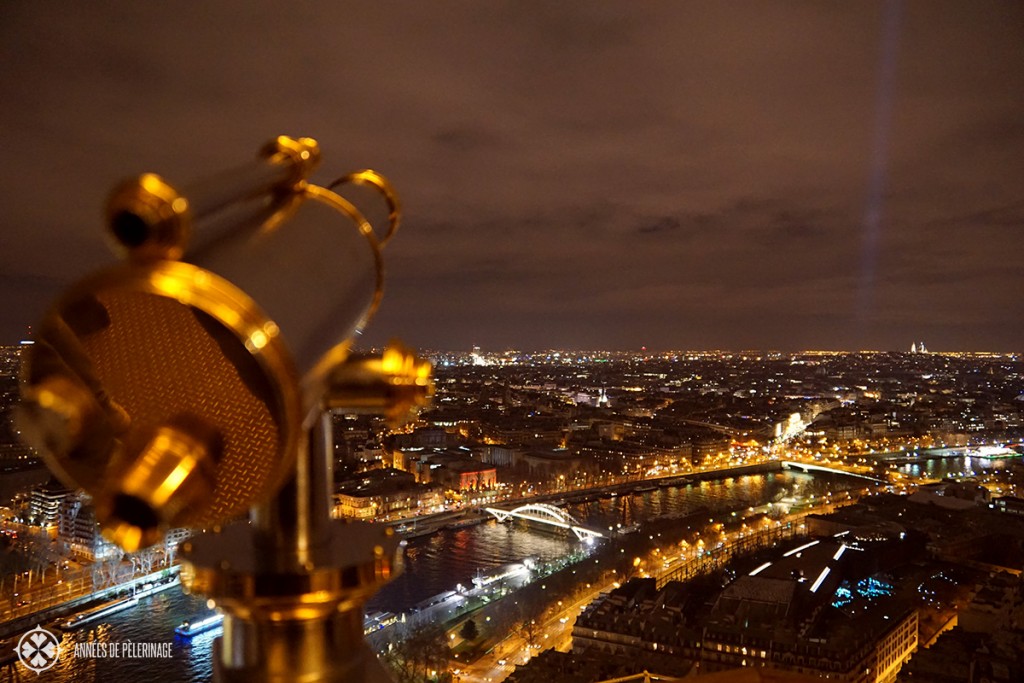
What happens if you plan too much? Usually, you try to stuff too many tourist attractions into too few days. Seeing Europe in 7 days simply is not possible. It’s probably not even possible to see Paris, Rome or London each in barely a week. I realize some people don’t have 31 days of leave per year (like most Germans do, plus at least 10 national holidays) and they need to employ much tighter itineraries.
But at the end of the day, you really should consider taking things a bit slower. Allow for some time to breath in the true nature of a sight, and maybe even to revisit it. Visiting Paris for a day, but never having the chance to see the Eifel tower at night, means you missed so much that it almost feels like you didn’t visit at all (just in case: check my guide to the 10 most amazing photo spots in Paris). Sometimes, itineraries are so packed it almost feels like work and not so much like your perfect vacation.
Obviously, you can also stay too long in one place. But tight itineraries also have another problem: Checking-in (hotels, flights or train) always takes time. Maybe one hour each, but if you do it 10 times in 7 days you already wasted 21 hours of the 168 hours available (more than 10 percent!!). Personally speaking, I can’t recommend staying only one night in any given spot, as you are wasting too much time on logistics.
25. Not bringing a travel guide
I know, I sound a bit like a hypocrite when I, as a travel blogger, recommend you buying offline travel guides, but there it is. Buy one. Your mobile/laptop can break down, and there may be no wifi or connection. The remoter your destination the more likely this is going to be happening. A good travel guide usually contains a proper map and also some basic language advice. In short, it is your perfect travel companion.
I couldn’t possibly count the many times I sat on the plane, train, taxi or used the minutes before going to bed reading travel guides and planning the upcoming days. I love them, and it’s not like they cost a fortune either. 10 – 20 US-Dollar is a very fair value if you ask me.
26. Checking in too early
Most airlines allow their business and first-class passengers an early check-in. Except on overbooked flights or flights where people are prone to take along an excess of carry-ons, there is not a single reason to board a plane earlier than you absolutely must (except you are into sadomasochism). There’s no use in lining up for the queue the first time they open the gate for boarding. They won’t leave without you (except maybe on United *lol*)
Always remember, the space of the gate is 10 times larger than the airplane. It’s bad enough that you have to squeeze yourself into that small seat for at least 8 hours on a long distance flight – why torture yourself with boarding too early and add another 30 minutes without leg room. Rather use that time to stretch your legs (quite important from a health point of view), see the toilet or simply browse the duty-free area.
Hotels are a different matter altogether. Here, you should absolutely try to get an early check-in and a late check-out. Sometimes there is a small additional fee, sometimes they will only be able to store your luggage, but give you free access to spas and restaurant.
27. Not respecting local customs & traditions

Much like running around unveiled in some Arabic countries will (at least) get you unwanted attention, it’s not all too smart to walk around in a hijab in most western countries. First of all, it’s about respect. But maybe even more importantly, you are visiting a foreign country and you will need the help of the locals at one point or another.
Whether it’s getting the best seat in a restaurant, directions to a certain landmark or a good price for a souvenir – it’s all so much easier if the guy opposite doesn’t hate you straight away for what you are wearing or doing contrary to the local customs.
And please, no matter, if the full veil is prohibited or explicitly proscribed, no matter if eating the still-beating heart of a freshly slaughtered lamb is a sign of honoring a guest or eating the meat of holy cows a mortal sin – adjust to the local customs. You are the visitor. Everything else is pure (western) arrogance. If you can’t cope with it, stick to all-inclusive beach resorts where they serve pizza, burgers and organic vegan gluten-free frappuccino all day.
28. Forgetting basic safety measures

I have never lost my luggage, I have never really been scammed and I have never ever had anything stolen from me. And this is coming from a guy who has visited more than 50 countries and been on so many trips I lost count twenty years ago. How did I achieve this? Using my common sense.
It’s probably not smart flashing your riches when walking through a ghetto and it’s never smart when you are wearing your disrespect of the local customs like a second skin. But it’s also never a good idea to be overly careful, avoiding things because 10 years ago some guy reportedly got his things stolen because of this and this. This actually makes you stand out as a tourist who has no clue.
Always store your valuables in your hotel safe – even at luxury hotels! Pick good, sturdy suitcases and make sure all tags from previous trips were removed. Never store all your valuables in one place and always have a spare or last reserve.
ALWAYS know where your credit card is, never give it out of your hands and possibly check the card reader for tampering. Consider getting a rfid-blocking wallet.
Avoid looking the tourist and more the experienced traveler. Do some research on common scams in advance and learn to say “no” faster than any local can say “my friend”. Never hand over your most precious belongings to anyone else you got no reason to trust, especially not those calling you “my friend”.
29. Not bringing enough cash

There is nothing worse than walking past a store with beautiful local antiques, seeing the perfect souvenir and not having enough money to buy it (as they don’t accept credit cards). My dad admonished me to always have 500 US-Dollar at hand, and you probably won’t believe how often I used this cache of last reserve (here is a list of all countries and their currencies for your convenience)
500 US-Dollar sounds awfully much? Well, fair enough my budget might be a bit higher, but if you are traveling in a small group of two or three that money melts away faster than you think. It’s not only souvenirs but also super special restaurants or maybe that private boat excursion from the harbor you don’t want to miss.
Also, always pick up some local currency directly at the airport. Sometimes you even get the best rates at the airport (and sometimes you don’t – depends if the country has a black market, open access to FOREX, etc), but you will need some money for that first taxi, the porter boy or for a bus ticket. No need to change millions, but enough to get you past the first day or until you’ll be able to visit a proper bank.
Important: In countries like Scandinavia cash almost completely vanished from everyday life. Here, you are screwed without a credit card (as screwed as you are in Germany with one *lol*)
Also: Always check what you are allowed to export! Trying to get some things out of a country might even get you to jail.
30. Not bringing pen & paper
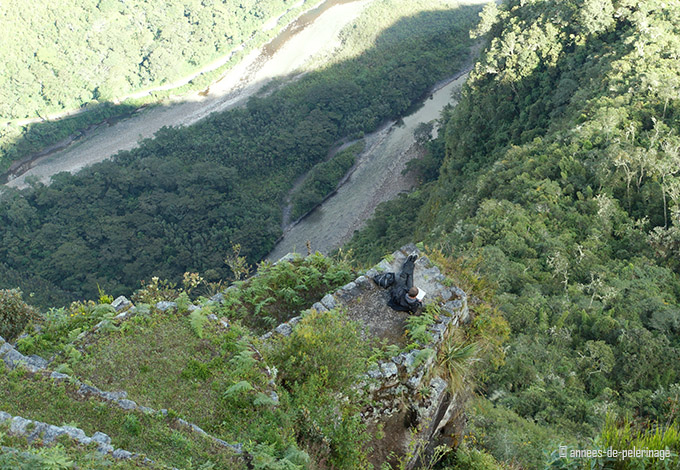
Ever been in a situation where you couldn’t communicate with a local? Well then, why didn’t you think of drawing what you want or simply writing it down! A picture says more than 1,000 words and sometimes will be able to help you out faster than you’d think it possible after wasting half an hour trying to use your hands.
Also, customs often require you to fill out little forms upon arrival. A lot of countries require you to fill in a little visa application before you enter (usually issued on the plane). It’s always smart to have at least a pen in your pocket. It’s something you can also easily pick up at your hotel.
Note: I’m aware modern smartphones have amazing apps to help you. But they can be stolen, they can break, there may be no connection, and they do run out of power. Good to have a backup, eh?
[Bonus tip I totally ignore!] Overpacking

You don’t have to bring your whole household on a short city trip. You will find a couple of packing lists on my blog (Machu Picchu packing list | Scotland packing list | Ireland packing list, etc). But at the end of the day, it boils down to common sense. Prepare a list of the things you want to do, of things you could possibly face and then compile a sensible list of items you need to pack to experience these things to the fullest.
Then make a list of the days you will be staying, consider the weather and make a list (in your head) of what you will be wearing on each day and then pack one spare. There is no need to have a new outfit each day and you certainly won’t need more outfits than days you will be staying. Always remember, you do have to carry around your suitcase and too many choices actually make things so much more complicated.
But then again, I was never good at packing light and it never encumbered me in the last. Actually, I like to pack for all possibilities (smart, not 20 outfits I don’t need) as I tend to travel very versatile. I’ll often start the day at my luxury hotel’s brunch, hit the mountains and go to the opera in the evening, followed up by a visit to an underground club for ambitious electronic music. Could do it all in the same outfit, but might get some unwanted stares. lol.
And here, in the end, I got something special for you: a little downloadable checklist for your next trip (printer friendly, so don’t expect colorful graphics!):
[convertkit form=5172671]
Okay. Time to stop. This was my list of common travel mistakes you need to avoid. Got something to add? Questions? Feel free to ask them in the comments below!
Liked this article? Then pin it to your Pinterest board or share it on social media!
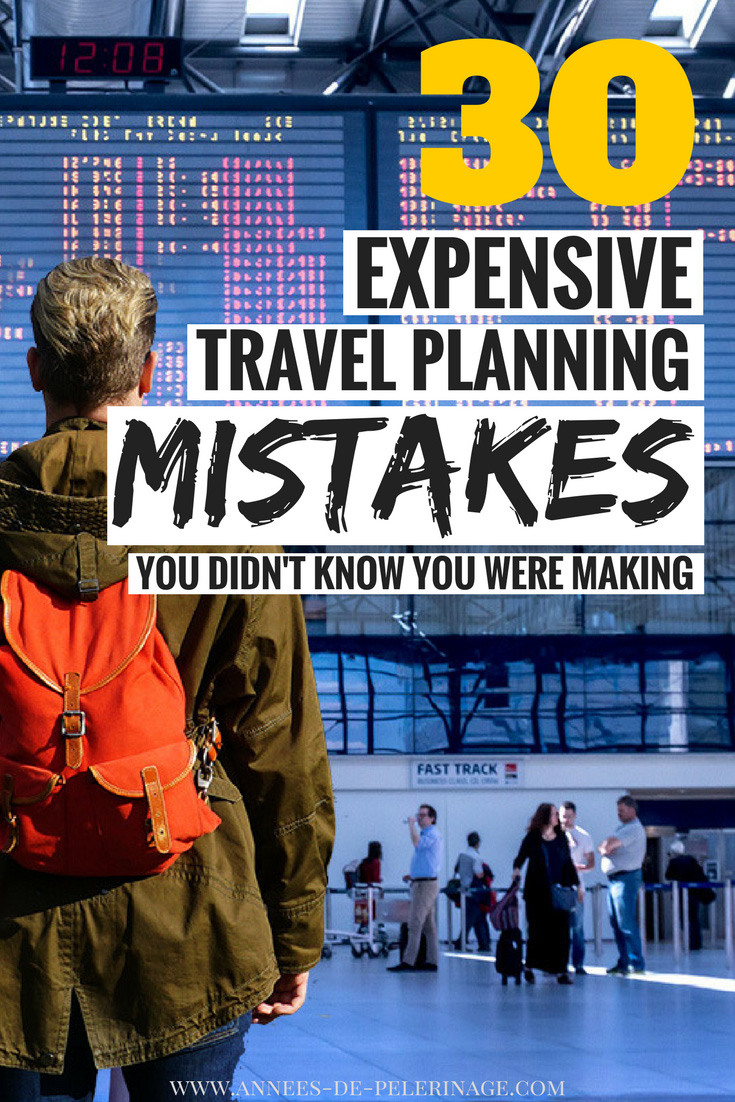


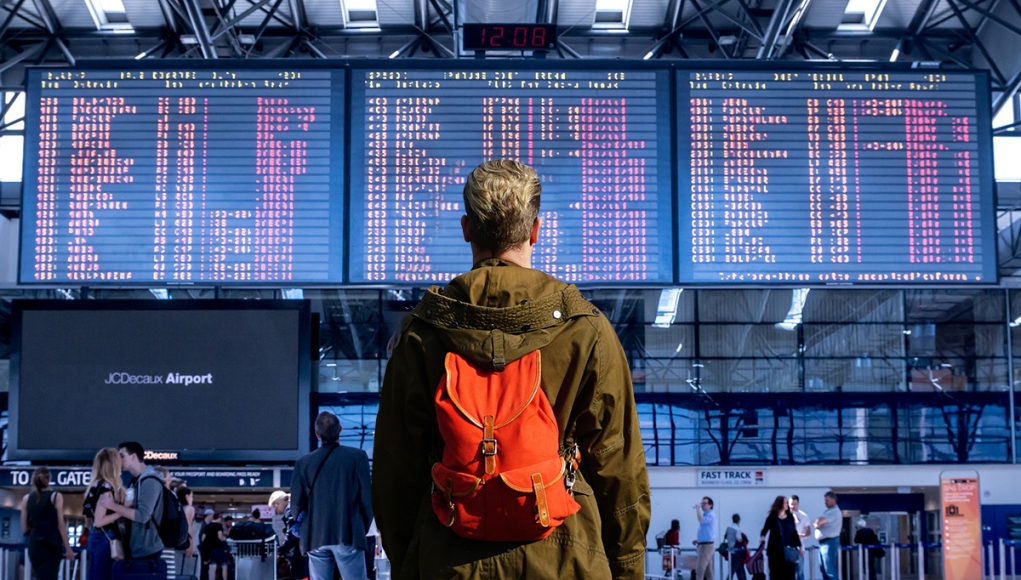





And do not forget the old maxim: Bring twice as much money and half the clothes you think you will need. Works every time.
Love the list, especially the point of “planning” “guide book” and “pen and paper”. I always have a plan for my days on vacation, it serves as an outline and I am free to change plans, but I just cannot do without it. People often ask me why the guide book when I have a plan, well, as you said, fun to read in between, provides language help and a little history and context for the location. Pen and paper…goes without saying. Thanks for the article!
Some great ideas. I will definitely buy a travel guide (maybe Loney Planet Egypt). Thanks.